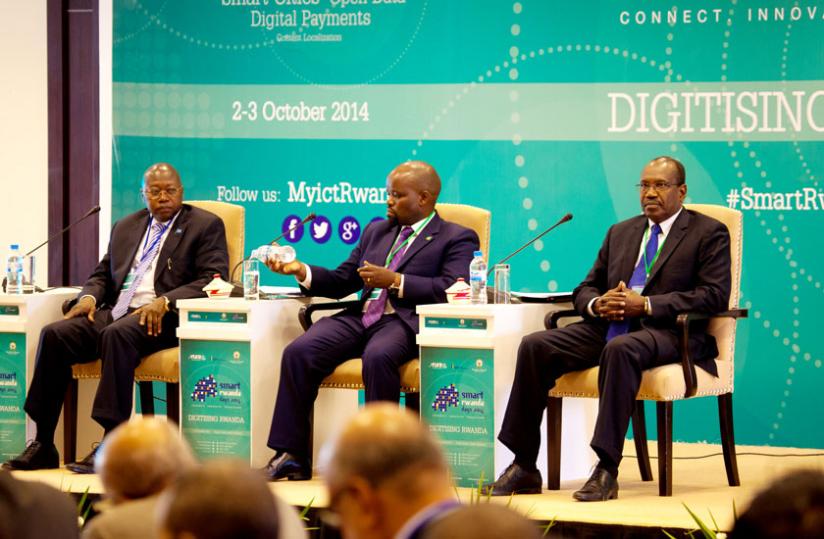African governments have been reminded that as they celebrate the gains and achievements made in information and communications technology (ICT) and Internet penetration, they should bear in mind the challenges stalking further development of the two.


African governments have been reminded that as they celebrate the gains and achievements made in information and communications technology (ICT) and Internet penetration, they should bear in mind the challenges stalking further development of the two.
Dr Hamadoun Toure, the secretarygeneral of International Telecommunication Union (ITU), said the key challenges include affordability of broadband and the new cyber security threats that users are now exposed to as a result of the connections made.
Dr Toure was yesterday speaking at the launch of the second annual Smart Rwanda Days in Kigali.
The event that brought together more than 400 delegates drawn from various national institutions, development partners, policy makers, private sector and visiting delegations from across Africa is running under the theme, "Digitising Rwanda.”
Dr Toure said despite progress and achievements made in terms of internet penetration, there was much ground to be covered.
"So far, we still have only about 22 per cent of Africans accessing the Internet, which is almost one-fifth of sub-Saharan Africa, meaning that four fifths still need to be connected,” he said.Even those who have access, Toure said, it was still expensive with mobile broadband costing half of average income in some sub-Saharan Africa countries.
He further noted that the emerging risks of cyber crime that had come up as a result of the progress.
"We also need to recognise that in welcoming extended access to internet and connecting Africa to the rest of the world via satellites, we are also opening the doors to cyber threats.
When you get online, you need to be aware of online security challenges,” Toure said.
He said Africans need to ensure that virtual resources from banking information to personal data are safe, and also encouraged participation in the ongoing debate of the possibility of Internet governance that requires a multi-stakeholder approach.
Urging investors
Toure added to the voice of African leaders in urging investors to consider ICT-related business opportunities in Africa, noting that they were profitable and assured returns on investment.
In the last five years, the business community had committed to invest up to $55 billion and have surpassed the target by giving more than $70 billion during the same period in Africa.
The Minister for Youth and ICT, Jean Philbert Nsengimana, said Rwanda had benefited numerously from embracing ICT in the recent past.
He said digital economies were growing much faster than traditional sectors as was the case in Rwanda.
"In Rwanda, ICT contribution to the Gross Domestic Product during the last two quarters stood at 2 per cent, which was ahead of agriculture and mining exports combined with the African Average being 1.1 per cent and advanced economies’ average being 3.7 per cent,” Nsengimana said.
The minister said ICT had also proven to be one of the top foreign direct investment attractors in the country.
"The ICT sector has attracted about 45 per cent of total foreign direct investments which is more than the contribution of trade, financial sector, mining and manufacturing sectors combined,” he added.
‘Tangible benefits from IT’
Nsengimana also cited other contributions such as increasing access to healthcare, financial sector inclusion.
"Let’s make sure that ICT can deliver tangible benefits in education, health, agriculture, governance and all other important domains. Let’s see what else we can do to improve the lives of Africans through ICT,” he said.
The United Nations Resident Coordinator, Lamin Manneh, said digitalisation by consumers, enterprises and governments had emerged in recent years as a key economic driver with the potential to accelerate economic growth as well as facilitate poverty reduction.
"In the current Rwandan economic transformation context toward a knowledge-based economy, in line with country’s Vision 2020 and the second Economic Development and Poverty Reduction Strategy objectives, digitalisation can play an important role in assisting policymakers to attain the desired transformation,” Manneh said.
The two-day conference closes tomorrow. President Paul Kagame is expected to address delegates today.
The conference is featuring deliberations on topics such as digital payments, Internet governance, Internet economy, open data and content localisation, among others.


